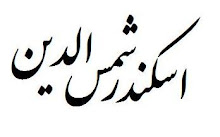After one whole day of straining my throat muscles, je suis enfin arrivé à prononcer le '3' en arabe. It is a funny feeling in the throat, I must admit. Mais il a certainement vallu la peine, even if I might have puzzled many a passer-by by my seemingly involuntary gaggings. Now I really enjoy doing it, although I still need the help of the 'H' in 'habibi' to initiate the muscle position. I'm almost there.
Marcel says it's his favourite sound. My favourite sound, however, is the 'H' in 'habibi' or the '7' as some people prefer to call it. It's so passionate, powerful and masculine.
Arabic is a great language and I believe I have all the genes for learning it well.
-------------------
J'ai appris aujourd'hui quelque chose de nouveau sur la langue française. Mais ça n'a pas dû être nouveau... C'est quelque chose de fondamental que j'avais si longtemps ignoré. Sacré français!
C'est la règle qui défend à un adverbe de se mettre après le participe passé aux temps composés. Selon M. Geldreich (notre prof de français), il est impossible de dire 'J'ai trouvé enfin', mais 'J'ai enfin trouvé' marche très bien.
Inscription à :
Publier les commentaires (Atom)

3 commentaires:
La 'ayn en árabe es difícil, pero a mí ya me sale bien también :D. ¡Un aplauso para el gran Álex! :D
say "Hat" pronouncing the H as far back in your throat as you can, and you should be pretty close to the 7 in Arabic.
En français, l'adverbe suit souvent l'élément conjugué de la phrase - c'est à dire soit l'auxiliaire, soit le verbe conjugué à un temps simple.
Dans :
"Je ne mange jamais" et
"Je n'ai jamais mangé",
l'adverbe est placé au même endroit : après l'élément qui porte la marque de flexion.
C'est formulé autrement, mais c'est exactement ce que ton prof a dit. *clin d'oeil*
Good luck with Arabic : it does have some tricky sounds. I haven't yet given up on the "uvular" Q (like in "qaala" - he said) Throat musculation !
Enregistrer un commentaire